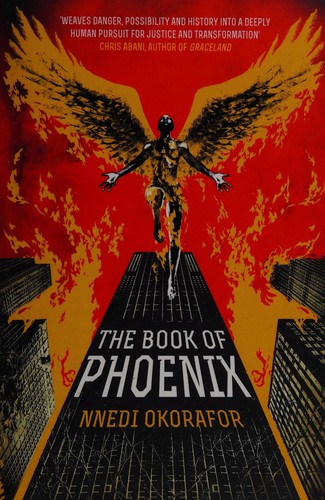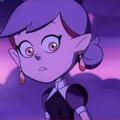Review of 'The book of Phoenix' on 'Goodreads'
4 stars
I'll have to think about this for a bit before I give my rating...
So, almost a week later I am ready to render my verdict. It took me a while to get into this follow-up/prequel to Okorafor's fantastic Who Fears Death. This is mainly due to the change in writing style. Instead of the more traditional and capable narrative form employed in Who Fears Death, The Book of Phoenix is mostly written as if it is being told to you directly by the main character, Phoenix. It's almost like you meet each other several times and she fills you in on what's been going on since last you met. I was not really expecting this shift in writing style and initially felt the book was poorer as a result.
Rather then continue with this hostile view, I took a break and read a Golding novel and a history of …
I'll have to think about this for a bit before I give my rating...
So, almost a week later I am ready to render my verdict. It took me a while to get into this follow-up/prequel to Okorafor's fantastic Who Fears Death. This is mainly due to the change in writing style. Instead of the more traditional and capable narrative form employed in Who Fears Death, The Book of Phoenix is mostly written as if it is being told to you directly by the main character, Phoenix. It's almost like you meet each other several times and she fills you in on what's been going on since last you met. I was not really expecting this shift in writing style and initially felt the book was poorer as a result.
Rather then continue with this hostile view, I took a break and read a Golding novel and a history of philosophical paradoxes before returning to this book. I decided to view it as a "Young Adult novel" so my view of its apparent inferior writing would not bother me as much. The strategy worked and I was left to sort out my initial negative feelings about the book with feelings of awe that developed once I let my expectations go.
Turns out, there's a lot going on below the surface of the narrative. Some becomes obvious as the story goes on, but others require thought on the readers part. Even just a few minutes before writing this review, I thought about the story in a different context that added depth and meaning that I had not noticed before.
Nnedi Okorafor has written a novel that, despite its "in your face" plot and obvious allegory, turns out to be an incredibly subtle work that stays with you and compels you to ponder its message. Far from going to exhaustive lengths to teach the reader her lesson, she takes the approach of another teacher and tells her reader, "He who has ears, let him hear".
As she did in Who Fears Death, Okorafor handles the emotions of anger and fury incredibly well. To her, these are not characteristic of evil, weakness, or ignorance... rather they are the natural result of learning about injustice and cruelty and the imperative driving force to change the world. There is little to no guilt in acting on such anger, and there certainly is no pathetic second-guessing about "sinking to their level" or some such nonsense. Cruelty is not some mere action you might find offensive, it's an evil that taints those who participate in it and those who are passively accepting of it.
Hypothetically, one could read The Book of Phoenix before Who Fears Death,
but in my personal opinion, you will get more out of it if you read Who Fears Death first. The ending, especially, would make more sense in this reading order.
The Book of Phoenix is a haunting book and, despite my initial pretentious misgivings, a great success. It was fortunate that I put aside my expectations and timely that I learned this lesson right before the US release of Okorafor's Lagoon this Tuesday.

